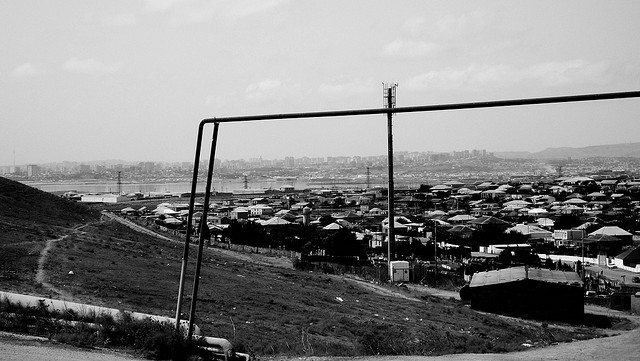
Just over a year ago at the tenth anniversary of the EITI I delivered an expose: Civil society and the EITI in Azerbaijan: blissfully married or on the rocks?. Pretending to be an Azeri marriage counsellor I presented a thorny state of marital affairs where the space for civil society to operate and play their due role in the EITI process had shrunk over the years rather than increased. The speech was meant to encourage the Azeri government to reflect on their leadership role as the first EITI compliant country and at the same time warn them of their responsibility vis-à-vis civil society participation and the enabling environment, as laid out in the EITI standard.
Unfortunately marriage counselling didn’t elicit a good response and in 2014 the situation for civil society worsened. In February 2014 President Aliyev signed a series of amendments restricting the ability of civil society organisations to operate freely. According to Human Rights Watch, these amendments have been designed to increase government control over the activities of civil society and restrict fundamental freedoms. Around the same time NRGI’s advisory board member Ilgar Mammadov was sentenced to seven years imprisonment on politically motivated charges, which the European Court of Human Rights ruled ‘unjustified’in May. PWYP and the CSO constituency on the EITI board raised these concerns on numerous occasions at international board meetings as well as in board committee meetings. As a result of these discussions and negotiations the EITI board decided in July’s board meeting that a high level mission was warranted to assess whether the articles in the EITI Standard pertaining to civil society participation and the enabling environment were under attack. This mission took place in September and while the overall report remains confidential the key conclusion was that the EITI requirements relating to civil society participation and the enabling environment were not being met.
In cases of manifested breaches of the EITI standard the board has no other option than to suspend or delist an EITI country, this was therefore the position taken by the EITI CSO constituency during the board meeting in October last year. However, the other constituencies did not agree and in a watered-down compromise it was decided that Azerbaijan should undergo early validation starting in January 2015 and introduce remedial actions to address the situation for civil society engaged in the EITI. Since then, the situation for civil society has continued to deteriorate and events show what can happen to a country that was once an EITI poster child becomes a liability with its disregard for EITI board decisions – despite being on the board itself! In December President Aliyev introduced further restrictions for NGOs as well as foreign donors making it practically impossible to operate for either category. In addition on December 27 the authorities raided the offices of Radio Liberty/Radio Free Europe– the last independent media station that reported a lot on the EITI- and sealed it closed as they left. This comes on the same day that the unwarranted pre-trial detention of RFE’s famed anti-corruption journalist Khadija Ismayilova was reaffirmed in court. This doesn’t leave the EITI board with a lot of options once the early validation, which will be discussed at the next board meeting scheduled for April, is completed. After all, the October board minutes read that Should Validation conclude that it is manifestly clear that a significant aspect of the EITI Principles and Requirements is not being adhered to, the EITI Board will suspend or delist Azerbaijan in accordance with Requirement 1.7.a.
Could a divorce therefore be on the cards in 2015?